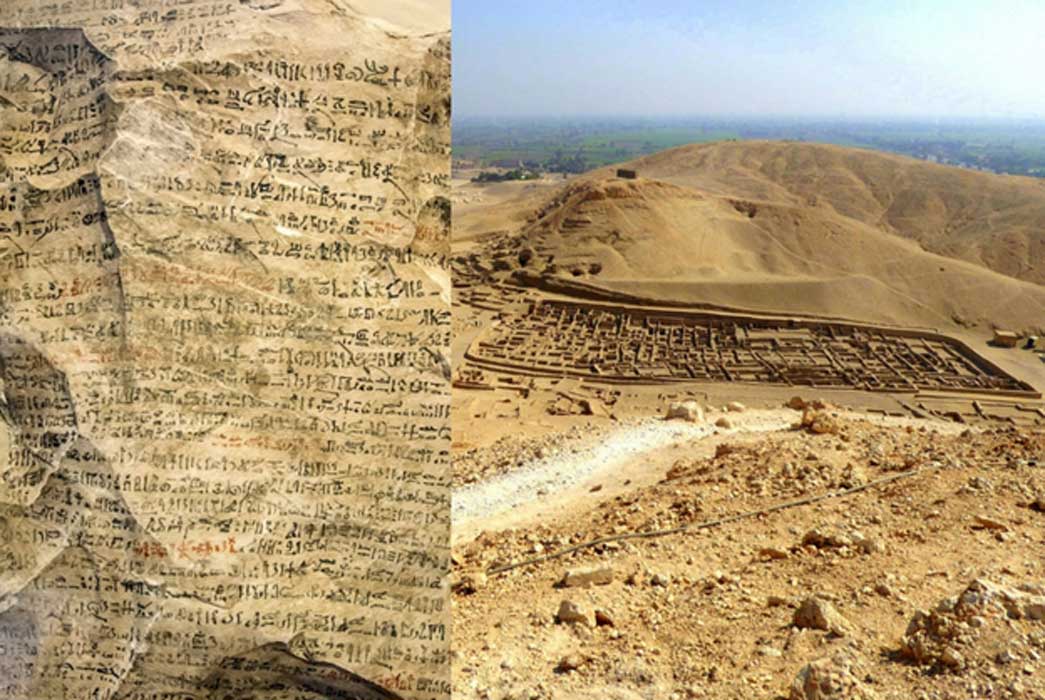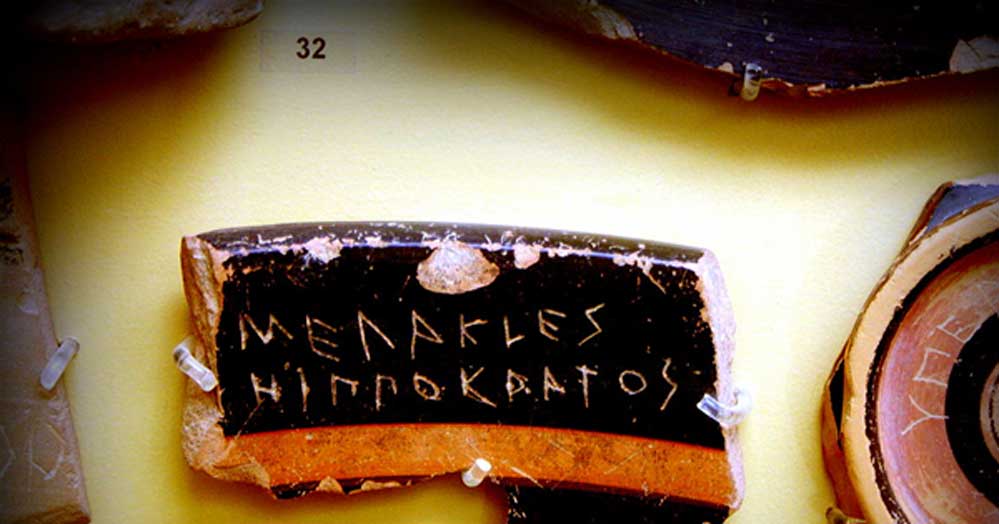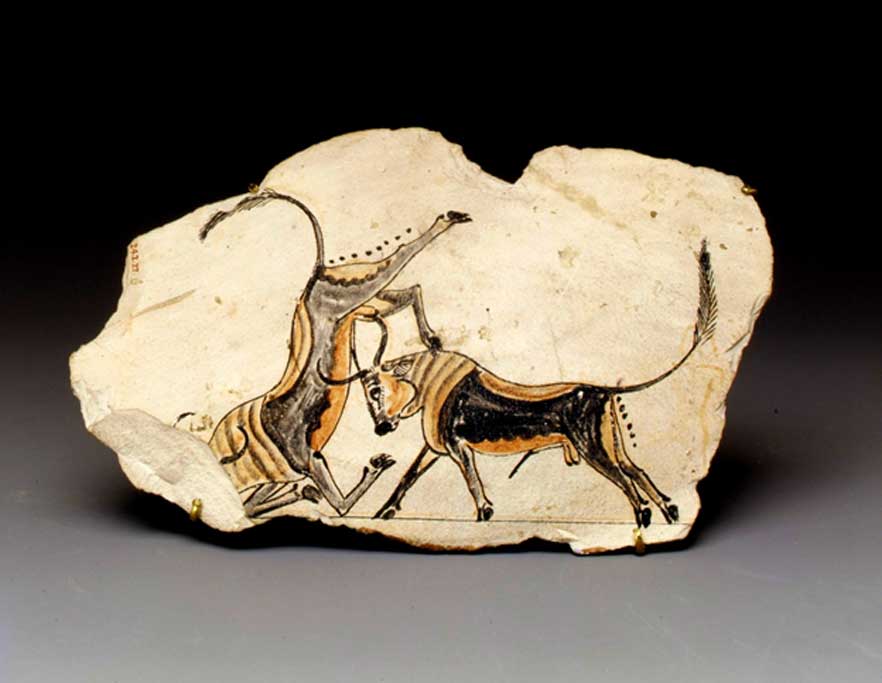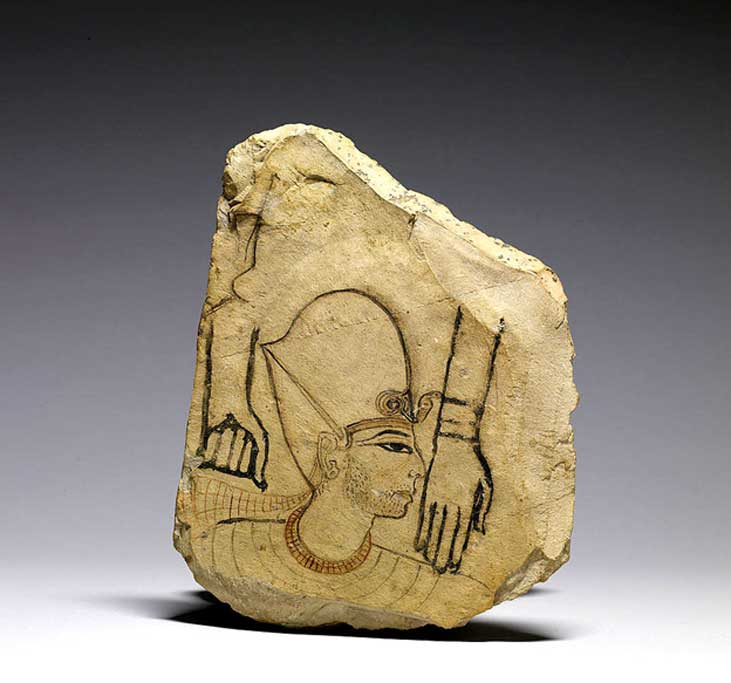
Ostraca: Voices from the Place of Truth—An intimate glimpse into New Kingdom Egypt
Athenians meted out harsh punishments to those who fell afoul of prevalent laws or societal norms. If citizens had done something terrible, they ran the risk of being exiled from the city for up to 10 years. An interesting system was put in place whereby citizen peers voted by scratching the name of the charged person on an ostracon (Greek for shard of pottery; plural ostraca), that was later counted. The fate of the accused was sealed if the majority felt he or she deserved to be “ostracized”.

An Athenian ostracon inscribed with the name of a politician proposed for exile by popular vote. This specimen proposes Megacles, to be ostracized in 487 BC. Ancient Agora Museum, Athens. Housed in the Stoa of Attalus. (Photo: Giovanni Dall'Orto/Public Domain)
In fact, many early civilizations used ostraca—the ancient equivalent of ‘Post Its’—for a variety of purposes, including as tax receipts, legal documents, and for jotting down miscellaneous bits of information. These scribbled words, writing or drawings have given us an insight into the inner workings of ancient peoples. This brings us to the ancient Egyptians who, being prolific writers and artists, either couldn’t afford the costly papyri sheets, or ran out of them often. The ubiquity of limestone flakes and potsherds was their readymade and ingenious solution.

This finely painted limestone ostracon shows two fighting bulls. Obviously, the creation of a skilled artist, the image conveys the sense of motion in a true-to-life manner. Upper Egypt. Metropolitan Museum of Art, New York.
MESSAGES FROM THE ANCIENTS
Modern day Deir el-Medina was the location of an ancient Egyptian village—“Set Ma’at” or The Place of Truth, and workmen who lived there were called “Servants in the Place of Truth”. An even older name for this site was “Pa Demi” or The Village. Highly skilled artisans and craftsmen who worked their magic in the spectacular tombs in the Valley of the Kings during the Eighteenth to Twentieth dynasties inhabited this place. Archeological remains suggest that at its peak, the community was home to around sixty-eight families comprising builders, scribes, artists and craftsmen. The first datable structures of the village originated during the reign of Thutmose I (c. 1506–1493 BCE) and the final stage of habitation occurred during the Ramesside Period.

This ostracon sketch depicts a king wearing the blue crown, a collar, and two strings of gold beads. His stubble beard is a sign of mourning. The features of the king make it likely that Seti I is represented. The elaborate execution of the royal image, which is the work of a master painter, differs from the depiction of the two hands. This sketch was probably a model for trainees. Walters Art Museum. Baltimore, Maryland. (Public Domain)
Even though Italian Egyptologist Ernesto Schiaparelli is credited with having begun the first set of excavations during 1905, it was not until 1922 that the full extent of ostraca usage in ancient Egypt, particularly in the famed workmen’s village at Deir el-Medina, came to light. At that time, excavations led by the Frenchman, Bernard Bruyère proved to be a pathbreaking effort. The team of archeologists stumbled across a treasure trove that some believed was far greater in importance than finding gold. When Bruyère completed his series of methodical digs in 1955 he had discovered the staggering community pit—and the cemetery—that was filled with tens of thousands of ostraca of different shapes and sizes.




